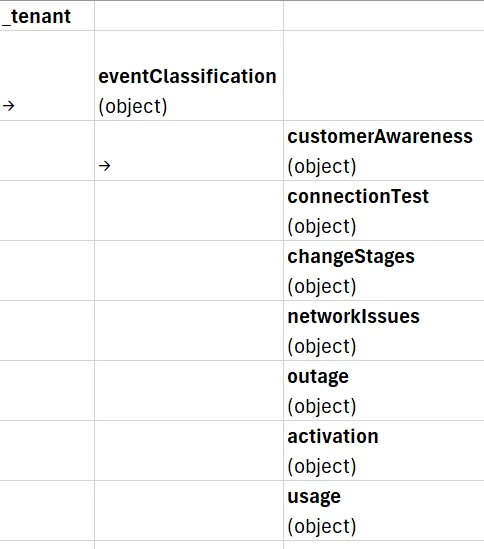Data Modeling and Event Limitations
Hi All
I have a few questions I wanted to pose:
1. Should there be a limitation on event types from the source data that will exist in our specific schema (AEP Event Schema) in this example? Any concerns if this schema continues to grow without limitation on objects existing in Event Classification as seen below? I.e. we continue to add more objects as needed under Event Classification.

2. If the schema grows with each use case/source event (ex: Customer Awareness, Connection Test, Change Stages, etc.) should we anticipate any performance issue if the classification object extends, but is comprised of mostly blank or unused values?
3. Are you aware of any limitations in AEP for total events that can be ingested daily/weekly?

